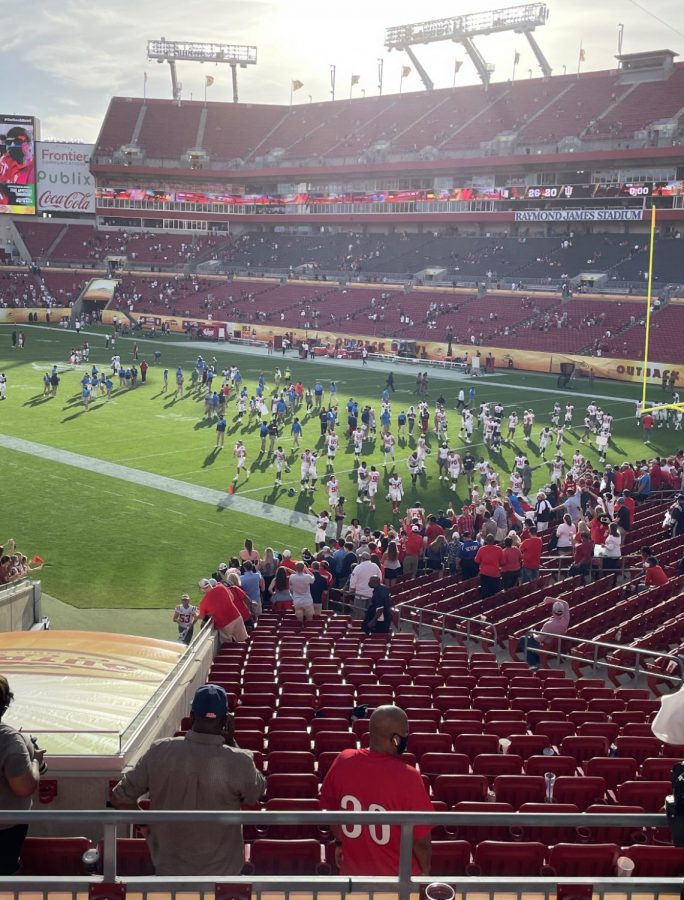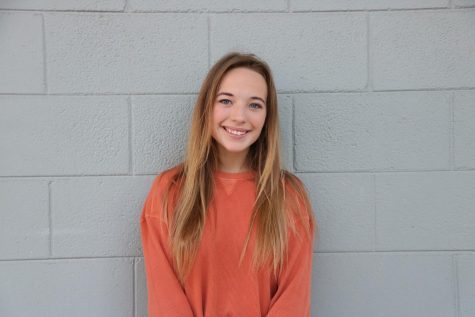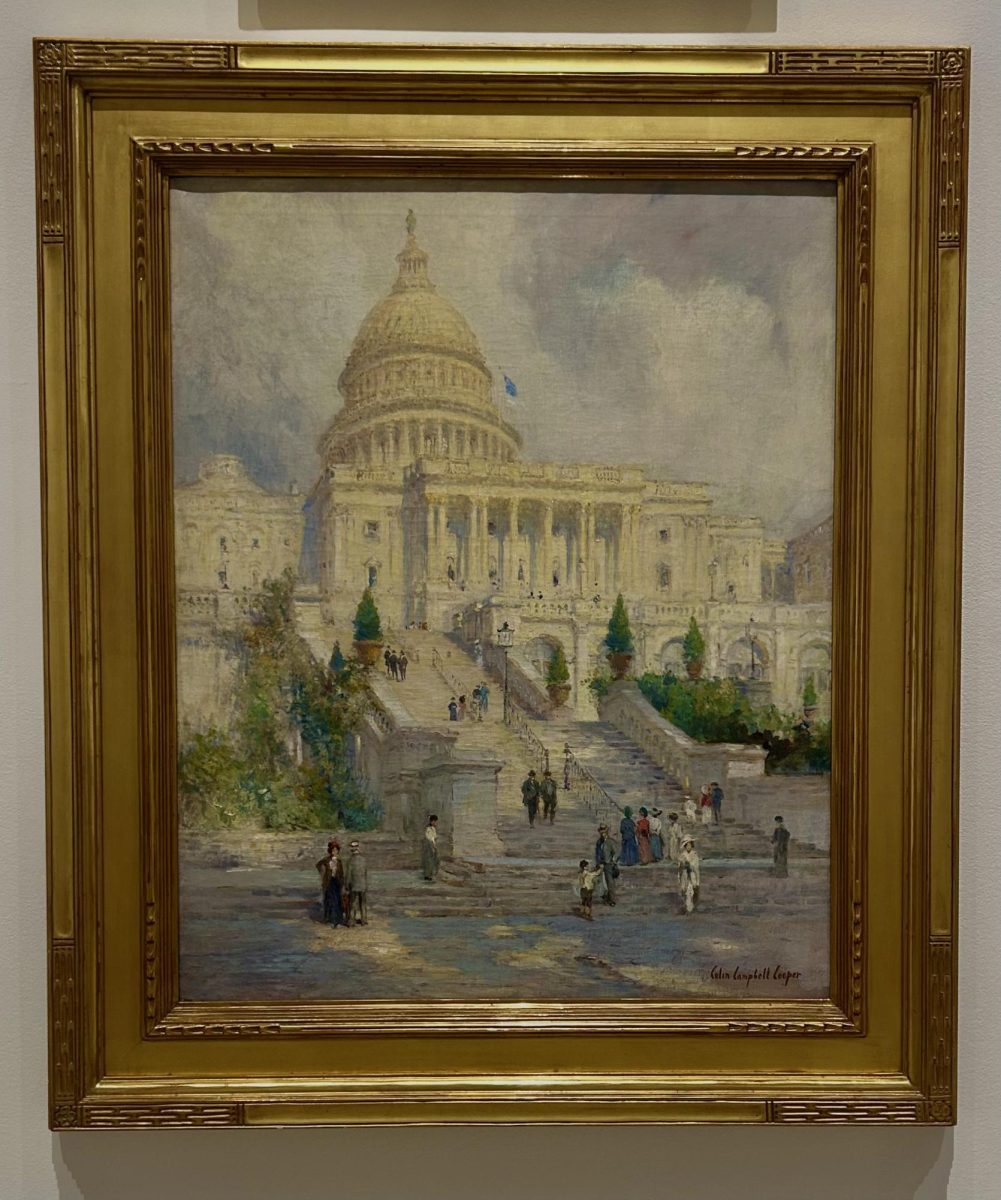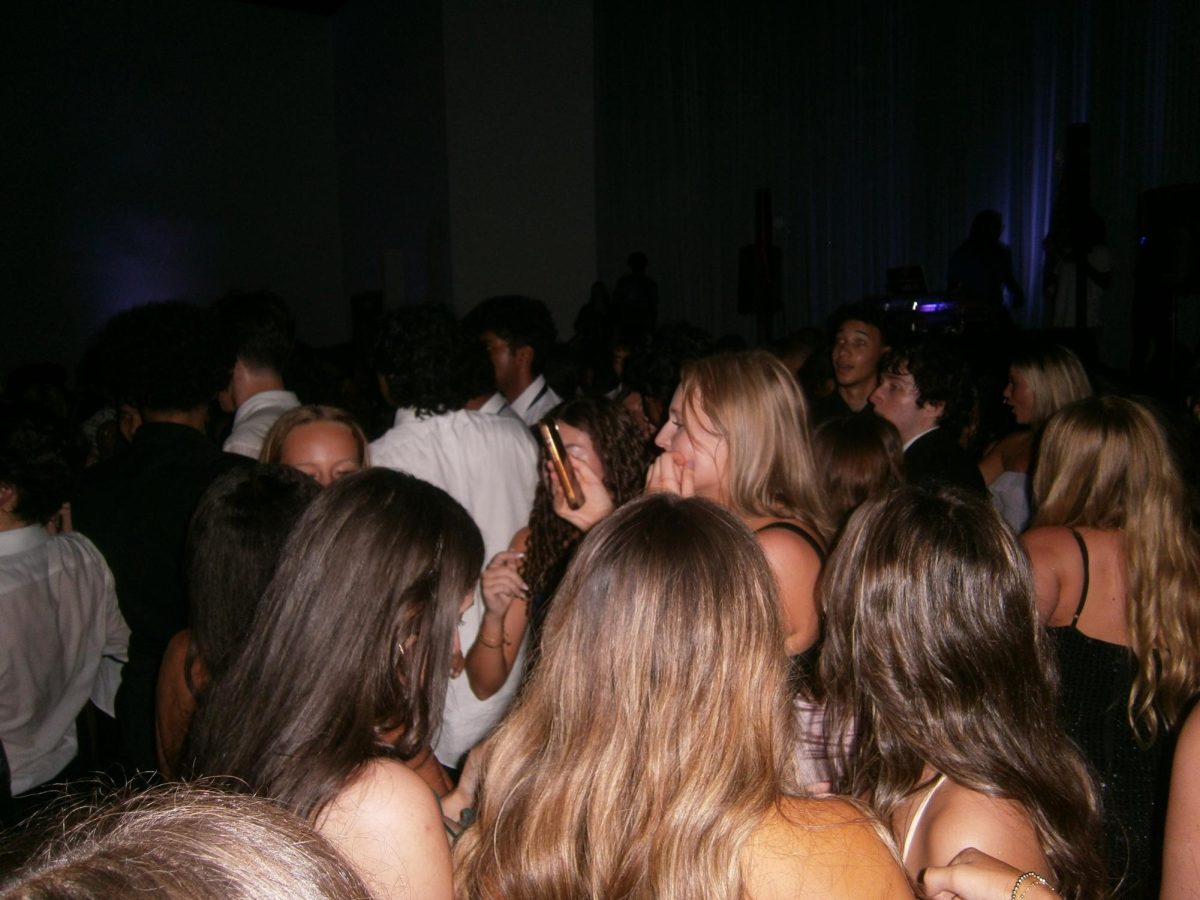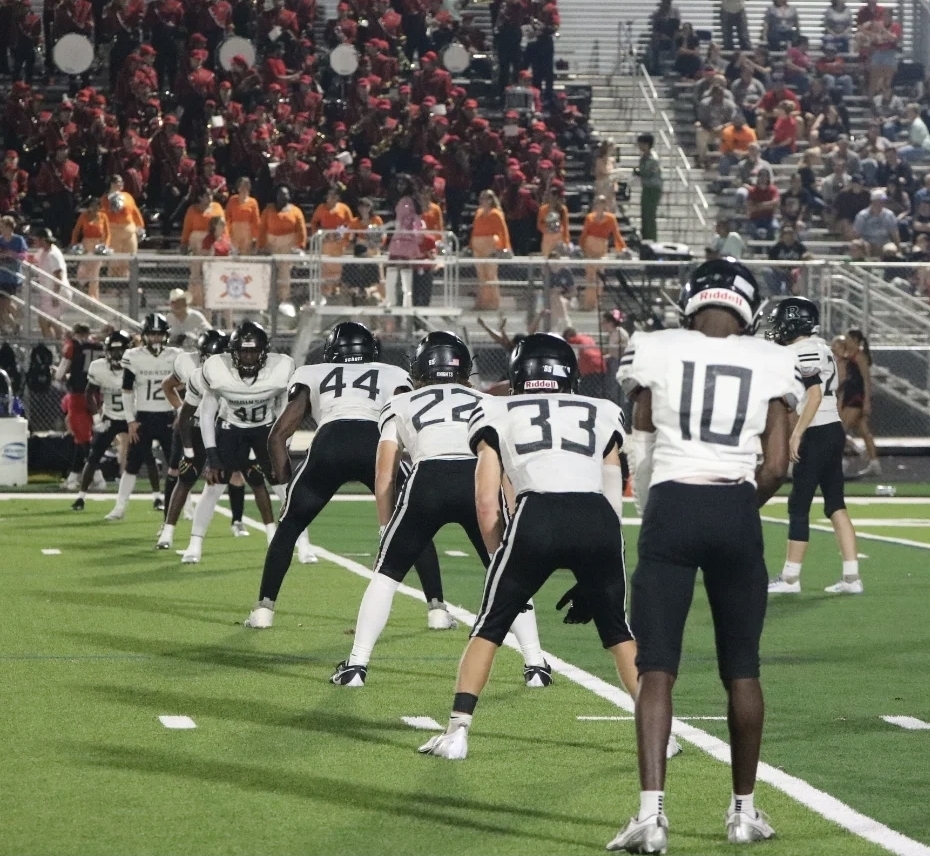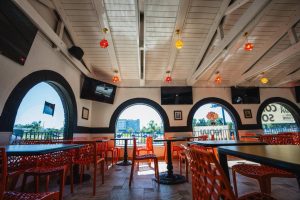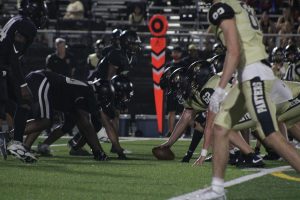Raymond James must tighten the reins
The stadium has been pretty lax with COVID-19 procedures
Photo Hanna Malone
After the game, the audience gathers around the edge of the field, many unmasked.
January 6, 2021
On Saturday, Jan. 2, I went to my first college football bowl game, the Outback Bowl, played by Ole Miss and Indiana University at the Raymond James Stadium. I must start with the confession that I, myself, was hesitant to attend the game this past weekend. Cases have rose tremendously as of late, and my initial response when my father asked me to go to his alma mater university’s game had been a firm, “no, but I really appreciate the offer.”
However, looking at the precautions being taken against the spread of the virus, I figured that the experience might be very similar to that of attending a high school football game earlier this year. I even supposed that the arrangement would be more effective than our school’s own sporting event policies in response to COVID-19.
So, I woke up that Saturday morning and threw on my red high-top Chucks, shorts and the only Ole Miss merch in my closest: a worn tee-shirt that is only slightly too big for me. But when I arrived, I quickly realized that my prognosis on the environment being “safe” was mistaken. This was thoroughly disappointing, because now more than ever, Raymond James Stadium should be enforcing preventative rules—especially with the Super Bowl being held in Tampa in early February.
Opened at 20% capacity, roughly 13,100 fans were permitted to attend the game. This was, perhaps, the greatest precaution taken against the spread of COVID-19 at the event, and the only one taken seriously. Upon arrival, I noticed that the parking lots were bustling with unmasked people, chattering excitedly about their predictions on who would win the game: Would it be the Bears or the Hoosiers? To my relief, as we entered the actual grounds, guests were instructed to mask up to enter.
During the typical security clearance, we were told that masks must be worn at all times except for while actively drinking or eating. The woman who told me this followed up with, “you could always be drinking or eating the entire time,” surrounding her words with dramatic air-quotes and a wink, seemingly joking. Now, the exchange makes me cringe, and I should have taken that as a warning and lowered my expectations for safety in the actual arena.
As soon as we made it through the gates, I witnessed people tug their masks below their noses, some wearing theirs on their chins and a large percentage blatantly taking off their masks all together. It was crowded walking up the ramp, with non-existent social distancing, and I was rather uncomfortable as I found the practice of taking off your mask in such conditions rude and ignorant given the global pandemic that we continue to live with. I understand that it was a bit warm out, but the weather was not anything unbearable; I feel as though many of the guests were simply being defiant against guidelines. It seemed as though there were more people not wearing facemasks or wearing them improperly than people who remained masked up as urged by the CDC.
Like the regulations set during our high school football season, Raymond James Stadium required fans to sit in a socially distanced “pods” of 2-4 people. These seats are assigned and guests are expected to remain in their ticketed seats. The chairs between pods were blocked from use by being zip-tied. Large groups tended to purchase separate pods, but ended up congregating close together anyways and ignoring the rules that had been set in place.
I do realize that there is only so much you can do in this situation, especially with regulations set by the stadium. However, the staff must do a better job at enforcing such rules. I passed dozens of employees and security sentinels who remained silent on the matter at hand; they simply watched as people irresponsibly took off their masks, left their pods and convened in large gatherings. The Outback Bowl was only a preview of what the Super Bowl could be like, and it is vital to reinforce and consolidate COVID-19 ordinances for the safety of our community.

